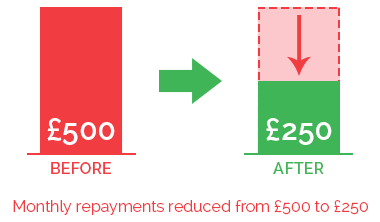Liquidation usually means, the company's trading stop and its assets are turned into cash or "liquidated". All other possible liabilities, like employment or renting a property, are stopped.
There are three types of liquidation in the UK:
Creditors Voluntary Liquidation is started by the directors, they tell the shareholders the company is not viable, it is insolvent and they must stop trading. The shareholders then ask a licensed insolvency practitioner to call a creditors meeting as soon as possible (not less than 14 days notice is required). At this meeting the creditors vote to appoint a liquidator.
So, this is why it's called Creditors Voluntary Liquidation. It's very common, quick and a very powerful way to close a business and deal with things properly. You can get on with a new business or job, the company is closed, leases cancelled and all the staff made redundant.
He or she runs the liquidation, fills out all the forms, calls all meetings and investigates the conduct of the directors before the liquidation. He collects assets and turns them into cash. He then works out the debts and pays the creditors from the assets, if there were any.
The directors have to fill out a detailed questionnaire for the liquidator. They MUST provide all of the books and records to the liquidator. After this there is a creditors' meeting which a director must attend. After that, very little else usually.
Don't worry; you can be a director of another company! But always act properly, don't take chances and think you are a smarter than the law. You aren't, lots of people think they are and end up in trouble. Call us now, ask all the questions you want for free.
This is a different type of liquidation. It is started by a creditor who has usually not been paid for supplies or services. He or she will ask the High Court to hear a "Petition" to wind the company up. If the Court agrees and or the debt is not paid; then a "hearing" is held in front of a High Court judge who then passes an order to wind the company up compulsorily.
This is a common tool for debt collecting; all the creditor has to do is have an overdue debt over £1500 and then ask a solicitor to start the winding up process.
This is used when a company has lots of assets but no further purpose for trading (usually small construction companies opt for this type of liquidation). The company assets are liquidated and turned into cash; this is then paid to creditors and shareholders.
In MVL every creditor has to get paid in full. Most often this is for rich companies with lots of assets.
" I found McCambridge Duffy to deliver on what they said they would do and to do so quickly with a minimum of fuss. There were not endless phone calls and letters but they got the facts, assembled the proposal and put it in place very quickly. The process was made less stressful by the way in which they managed it."

Work out what your new monthly debt repayment could be by filling in our debt and budget calculator form.

Client was struggling with monthly debt repayments of £500 to several creditors. We were able to have this reduced to £250 per month, with all interest and charges frozen. In 60 months, any remaining debts will be written off and they will be debt free.
Chat online with one of our debt advisors. We are available now to answer any of your questions.
© 2021 McCambridge Duffy Insolvency Practitioners.
All rights reserved
McCambridge Duffy LLP is a Limited Liability Partnership
registered in England and Wales.
Registered number OC309544
Registered office 17 Hanover Square, Mayfair,
London, W1s 1HT